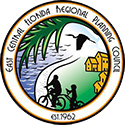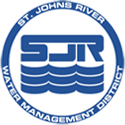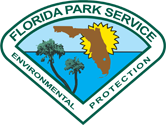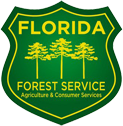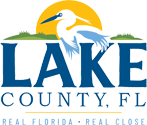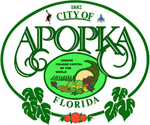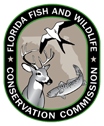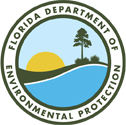Friends of the Wekiva River
Since 1982 the Friends of the Wekiva River, Inc., has worked to protect, preserve, and restore the natural functions and beauty of the Wekiva River system. As a result of their leadership and the cooperation of our river partners, the Wekiva is designated a Florida Outstanding Water, a Florida Canoe Trail, an Aquatic Preserve, and a National Wild and Scenic River with over 70,000 acres of state-protected lands in the basin.
Members of the Friends of the Wekiva River work on issues that affect the Wekiva, ranging from pollution to smart growth, to the welfare of wildlife, including bears. Representatives of the Friends of the Wekiva River have served on the BMAP stakeholder group, commented on models for the MFL update, provided public comment on incompatible land uses proposed within the Wekiva River Protection Area, and led hikes and paddles into the Wekiva River System.
National Park Service
The National Park Service administers the National Wild and Scenic Rivers System in accordance with the Wild and Scenic Rivers Act (Public Law 90-42; 16 U.S.C. 1271 et seq., viewable at www.rivers.gov/documents/wsr-act.pdf) Under the broad authority of the Act, the National Park Service conducts studies of the eligibility of rivers proposed for designation in the national system and coordinates with states in the development and implementation of management plans for rivers in the system. The National Park Service also reviews permits required by the U.S. Army Corps of Engineers under Section 404 of the Clean Waters Act of 1972 for potential environmental impacts on national wild and scenic rivers. Based on the authority of Section 7(a) of the National Wild and Scenic Rivers Act, no federal agency may assist by loan, grant, license or otherwise in the construction of any water resources project that would have a direct and adverse effect on any of the resource values of the designated segment of the river.
The NPS has a range of responsibilities for rivers depending on the administrative nature of the river. Certain rivers that flow wholly or partly within the boundaries of national park units or were designated as park units are administered solely by the NPS. Other rivers, like the Wekiva Wild and Scenic River System, are administered in partnership with state and local governments and/or non-governmental organizations. These are known as “Partnership Wild and Scenic Rivers” (PWSRs). A third type of WSR, designated by secretarial action at the request of state Governors, is administered by a state agency with limited technical assistance provided by NPS. These rivers are known as Section 2(a) (ii) WSRs, Additionally, NPS has responsibility for maintaining a list of rivers with potential for inclusion in the NWSRS. This list is known as the Nationwide Rivers Inventory (NRI).
The NPS oversees Partnership Wild and Scenic Rivers to protect the ORVs for which the rivers were designated. For the Wekiva Wild and Scenic River System, this is done through coordination with state and county agencies and community advocates. The NPS, through a cooperative agreement provides partnership funding for managing the Wekiva Wild and Scenic River System and all other partnership rivers and is responsible for reviewing all Federally-assisted water resources projects, pursuant to Section 7 of the Wild and Scenic Rivers Act. U.S.
Meet the Representative
East Central Florida Regional Planning Council
Established in 1962 as an area-wide association of governments, the ECFRPC is represented by 32 Council Members and a skilled staff that provides technical assistance to governments and organizations within the 8-County East Central Florida region.
Florida Department of Environmental Protection – Aquatic Preserve
Aquatic preserves — dotted up and down Florida’s coastline — offer a window into the state’s natural and cultural heritage. In 1975, with growing appreciation for their environmental diversity and alluring beauty, Florida enacted the Aquatic Preserve Act. This ensures the continuation of aquatic preserves’ natural conditions so “their aesthetic, biological and scientific values may endure for the enjoyment of future generations.
Florida Department of Environmental Protection – Aquatic Preserve
Aquatic preserves — dotted up and down Florida’s coastline — offer a window into the state’s natural and cultural heritage. In 1975, with growing appreciation for their environmental diversity and alluring beauty, Florida enacted the Aquatic Preserve Act. This ensures the continuation of aquatic preserves’ natural conditions so “their aesthetic, biological and scientific values may endure for the enjoyment of future generations.
Florida Department of Environmental Protection – Parks
The Florida Department of Environmental Protection is the state’s lead agency for environmental management and stewardship, protecting our air, water and land.
Florida Department of Agriculture and Consumer Services – Seminole State Forest
Since 1990, Seminole State Forest has been managed by the Florida Forest Service, to protect and maintain the forest’s native biological diversity while integrating public use of the resources. Multiple-use management promotes recreation, timber, wildlife, endangered species, environmental education and many other values that benefit Florida’s citizens and visitors.
Florida Forest Services
The mission of the Florida Forest Service is to protect and manage the forest resources of Florida, ensuring that they will be available for future generations. They manage over 1 million acres of state forests for multiple public uses, including timber, recreation and wildlife habitat. They offer technical information and grant programs to landowners to help them improve their forestland. Through wildfire prevention and suppression, we work to protect homeowners from the threat of damage in a natural, fire-dependent environment.
Aquatic Preserve Alliance of Central Florida
Established in 2016, the Aquatic Preserve Alliance of Central Florida is a citizen support organization for the Wekiva – Middle St. Johns Aquatic Preserve.
Florida Fish and Wildlife Conservation Commission
The FWC manages the state’s fish and wildlife resources, including more than 575 species of terrestrial wildlife and 700 species of saltwater and freshwater fish. Among its functions, FWC issues licenses for hunting and fishing, administers permit programs for incidental take and relocation, regulates captive breeding and possession of wildlife, and performs law enforcement. FWC is also a cooperative manager, regulating hunting and fishing on Wildlife Management Areas on Seminole State Forest and Rock Springs Run State Reserve. The FWC Invasive Plant Management Section is the lead agency for aquatic plant management in Florida. In addition to control of exotic plants and maintaining navigation throughout the Wekiva River System, FWC biologists are engaged in various activities relating to wildlife and habitat conservation, including research, management, and education. FWC developed the Imperiled Species Management Plan to address the needs of state listed species that did not already have a management plan or specific program in place. These species also have Species Conservation Measures and Permitting Guidelines that clarify what is needed for conservation and permitting of these species.
St. Johns River Water Management District
The St. Johns River Water Management District is an environmental regulatory agency of the state of Florida whose work is focused on ensuring a long-term supply of drinking water, and to protect and restore the health of water bodies in the district’s 18 counties in northeast and east-central Florida. While the district works closely with utilities on water supply issues, the district is not a water supplier.
Lake, Orange, and Seminole Counties
Orange, Lake, and Seminole counties implement actions to improve water quality, manage resources on conservation lands dedicated to ecological restoration, and support resource-based recreation. Each has adopted language in their comprehensive plans and development regulations requiring enhanced protection of natural resources in the Wekiva basin, and implementing the policies established for the Wekiva River Protection Area and the Wekiva River Study Area. These policies are reflected in zoning criteria and land development regulations that affect natural resources in the Wekiva basin. Orange, Lake, and Seminole counties also all own land in the Wekiva basin and allow public access for resource-based recreation. Orange County manages the heavily utilized Kelly Park and owns the property encompassing Rock Springs and the initial portions of Rock Springs Run. Orange and Lake Counties have developed management plans for each of their properties within the Wekiva River System and are working to restore the historical natural communities. Seminole County manages natural resources and recreation on the Black Bear Wilderness Area, which is within the Wekiva to Ocala Greenway and lies adjacent to the St. Johns River.
Lake County Commissioner
Lake County Water Authority
The Lake County Water Authority (LCWA) was established as a special agency dedicated to projects and management actions that conserve and improve freshwater resources in Lake County, including streams, lakes, canals, and the fish and aquatic wildlife that rely on them. In 2022, the Florida Legislature approved, and the Governor signed, a bill that proposed the transfer of responsibilities and taxes generated from the LCWA to the Lake County Board of County Commissioners, which accepted the transfer. This changed the LCWA’s status to a dependent special district, and the Lake County Board of Commissioners now has authority over the budget and millage rate of the LCWA. As a part of this transition, Lake County now has some responsibility for managing the Lake Norris Conservation Area.
Cities of Altamonte, Longwood, Apopka
Altamonte Springs, Longwood, and Apopka are partner cities on the Wekiva River Wild and Scenic River System Management Committee. Though they do not own conservation lands in the Wekiva to Ocala Greenway, they are in the Wekiva River Study Area and each participates in strategies to improve water quality through participation in Basin Management Action Plan (BMAP) projects. Natural resource protection embodied in the Wekiva Parkway and Protection Act and the Wekiva River Protection Act is referenced in the comprehensive plans and land development codes of these cities. Like county governments, these cities implement land development regulations that affect natural resources in the Wekiva basin.
Audubon Florida
Audubon Florida operates as a not-for-profit 501(c)(3) organization, and their mission is to conserve and restore natural ecosystems, focusing on birds, other wildlife, and their habitats for the benefit of humanity and the earth’s biological diversity.
Seminole Audubon
The Mission of the Seminole Audubon Society is to promote awareness and protection of the plants and animals in the St. Johns River basin in order to sustain the beneficial coexistence of nature and humans.
Seminole Audubon Society has served as an advisor on the Wekiva Wild and Scenic committee since 2019. Our goal is to help everyone understand the importance of the Wekiva River and the river basin for a healthy ecosystem and why it’s important to protect it. When people experience being on or near the river, they see the benefit for themselves physically as well as mentally and want to get involved to help protect it for themselves and for future generations.
Save the Manatee Club
Save the Manatee Club is an award-winning national nonprofit 501(c)(3) and membership-based organization established in 1981 by renowned singer/songwriter, Jimmy Buffett, and former U.S. Senator, Bob Graham, when he was governor of Florida.
Save the Manatee Club joined the committee in 2023. We are a non-profit organization focusing on outreach, public awareness, education and legal advocacy for manatees as well as assisting with manatee rescue, rehabilitation, release and research. We have been conducting the photo-ID research at Blue Spring State Park for over 40 years and many of the manatees we monitor during the winter months frequent the Wekiva River year-round. With a growing manatee population in the St. Johns River, the Wekiva River is becoming an increasingly important habitat for manatees and we are hoping to increase our engagement in the area both through research as well as public education and outreach.


